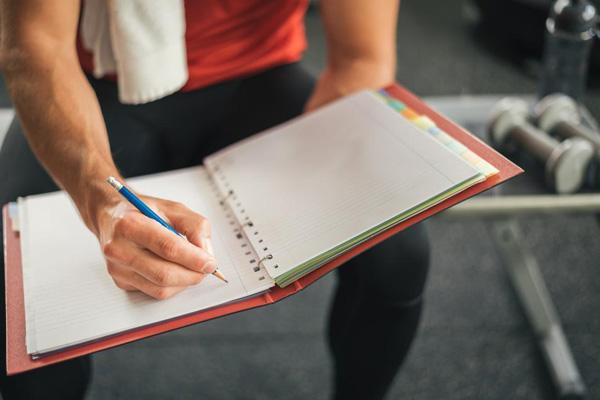
Many of our elite athletes cite journaling as an invaluable tool from ACL surgery. Journaling provides so many benefits for the injured athlete - and don't be scared if you are new to journaling - there are truly no rules. Journaling can be a structured way to track progress, process emotions, and even maintain motivation throughout the rehabilitation journey.
Here's are just a few of the benefits our athletes have expressed during recovery:
- Tracks Recovery Progress
- Physical Milestones: Record benchmarks like range of motion, strength gains, or the ability to walk with crutches.. or later... ability to return to running and jumping.
- Therapy Feedback: Write down PT or surgeon recommendations to ensure adherence to the recovery plan.
- Pain Levels: Document pain and swelling to identify patterns or triggers that could be addressed.
- Promotes Emotional Well-Being
- Express Emotions: Recovery often comes with frustration, anxiety, or fear of reinjury. Journaling provides a safe outlet to acknowledge and validate these emotions.
- Builds Resilience: Reflecting on small wins and coping with setbacks fosters mental toughness.
- Enhances Goal Setting
- Short-Term Goals: Write weekly or daily goals (e.g., "Bend my knee to 100 degrees" or "Box jump 24 inches with proper form").
- Long-Term Vision: Reflect on the ultimate aim of returning to sport or specific performance goals.
- Accountability: Seeing goals written down helps athletes stay committed.
- Encourages Positive Mindset
- Gratitude Practice: List 3 things you're grateful for daily, shifting focus to positives during tough times.... more on this later, but if that is too hard, you can write down neutral thoughts.
- Celebrate Small Wins: Acknowledge each milestone, such as climbing stairs or a reduction in knee swelling.
- Affirmations: Write confidence-boosting statements to navigate through doubt.
- Facilitates Problem-Solving
- Identify Patterns: Track what works (or doesn’t) during rehab. For example, “I felt better after icing consistently following my workout" or "I feel my best if I workout in the morning."
- Adapt Strategies: Adjust routines based on reflections, like changing workout times or rest strategies.
- Strengthens Mental Resilience
- Visualization Practice: Write down vivid details of returning to your sport or rec activity, helping build confidence and focus.
- Overcoming Challenges: Reflect on previous setbacks and how you overcame them to reinforce resilience.
- Creates a Personal Record
- Motivational Tool: Looking back on your progress can be empowering, especially during difficult times.
- Future Resource: Serve as inspiration for others or yourself in future recovery journeys.
Journaling isn’t just a way to write down your thoughts during recovery—it’s a mental resilience tool. By fostering emotional awareness, tracking progress, and promoting resilience, journaling can help you navigate ACL recovery. It's a small habit that can lead to big improvements in mental and physical recovery outcomes!


